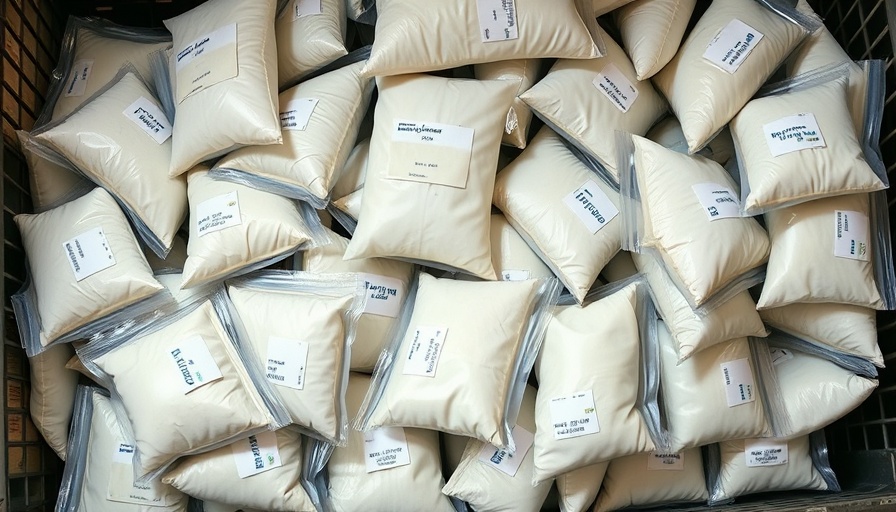
Drug Trafficking at OR Tambo: A Worrisome Trend
In a significant bust, South African authorities intercepted a shipment of cocaine valued at R6 million hidden inside boxes labeled as hair products at OR Tambo International Airport. This discovery is not an isolated incident but rather part of a troubling pattern of increasing drug trafficking activity. The cocaine, which originated in São Paulo, Brazil, was scheduled to head to France, raising concerns about South Africa's role in international drug routes.
SAPS spokesperson, Lieutenant Colonel Amanda Van Wyk, confirmed that the illicit goods were uncovered during a meticulous operation involving collaboration between the South African Police Service (SAPS) and Customs officials. This seizure underscores the importance of vigilant customs inspections, particularly at a major transit hub like OR Tambo.
Recent Trends in Drug Trafficking
The cocaine interdiction is merely the latest chapter in a series of drug trafficking arrests at OR Tambo. Just hours before this incident, a 55-year-old Nigerian national was arrested after swallowing cocaine valued at R7.5 million. This method of smuggling, known as 'body packing,' poses severe health risks for the trafficker, suggesting desperation and the lengths to which individuals will go amidst South Africa's significant unemployment and economic challenges.
Alongside these arrests, two South African traffickers were also apprehended upon their arrival from São Paulo, with drugs valued at R7.5 million found in their possession. These recent busts highlight a concerning trend of drug-related crime that could undermine public safety and exacerbate the already critical issues of crime and corruption in South Africa.
The Economic and Social Implications
Moreover, these incidents provide a lens through which to examine broader societal issues. South Africa’s struggles with economic recovery, notably high unemployment rates, and ongoing state capture, have created a fertile ground for organized crime and drug trafficking. With the economy still reeling from the COVID-19 pandemic and increased load shedding affecting businesses and livelihoods, these crimes are symptomatic of deeper systemic issues.
Authorities face a growing crisis, where drug trafficking not only jeopardizes public safety but also disturbs the social fabric. The need for a multifaceted approach that encompasses economic policies, crime prevention, and community resilience strategies is more urgent than ever.
Future Challenges: A Call for Action
The question that arises from this current issue is: what steps can be taken to combat drug trafficking and improve safety in South Africa? First, enhancing law enforcement’s capacity through better training and resources is crucial. Second, fostering collaboration between agencies, both domestically and internationally, can create a more robust response to the evolving drug trafficking networks.
Furthermore, long-term solutions must address the root causes of drug crime, including poverty alleviation and educational advancements. National elections and subsequent government policies need to prioritize tackling these systemic challenges, thus forging a sustainable path towards economic stability and reduced crime.
Conclusion: The Road Ahead
The interception of R6 million worth of cocaine at OR Tambo is more than just a law enforcement success; it is a call to action for South African society to confront the challenges posed by drug-related crime head-on. As citizens, stakeholders, and policymakers rally together, the focus must remain on fostering transparency, justice, and accountability in order to reclaim public spaces from the grip of illicit activities.
Your role in this narrative is crucial. Stay informed, engage in local community discussions, and advocate for policies that prioritize safety and economic stability for everyone. Together, we can make strides towards a safer future.
 Add Row
Add Row  Add
Add 




Write A Comment